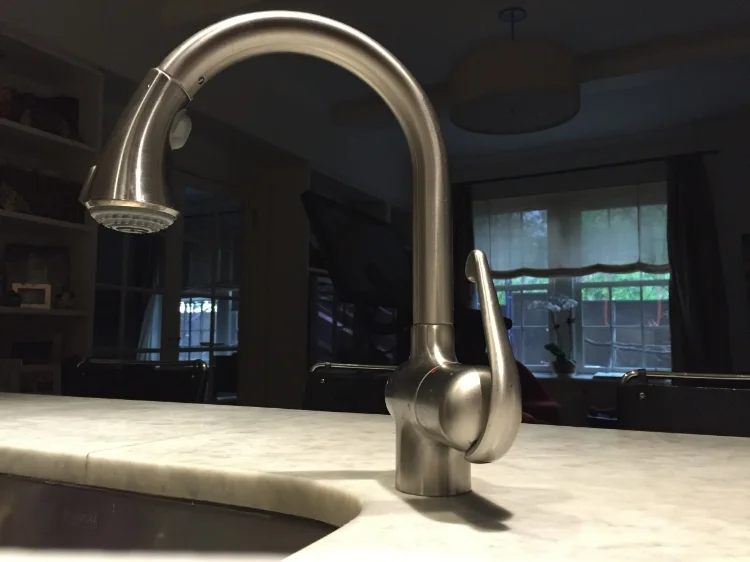...Check the warranty and call the manufacturer! You may very well be able to fix it for free or at a minimal cost.
In this month’s Practical Sustainability column, I advocate for reaching out to the manufacturer before you replace something that you think might be irreparably broken. Think of "Repair" as an add-on to the familiar "Reduce, Reuse, Recycle" adage.
Last month, several of our plumbing fixtures developed problems. This came as little surprise to me. After all, our fixtures are now 14 years old, dating back to 2002 when we purchased and renovated our apartment. And we live in a 100 year old building with hard water. Our fixtures have been workhorses and have served us well all this time. But after a decade-and-a-half of use by a family of five, our fixtures started to show some wear and tear.
I believed at a minimum that I’d have a really expensive visit from the plumber and that I’d potentially have to replace my kitchen faucet. But then I gave some thought to calling the manufacturers, and here’s what I learned:
- My Grohe kitchen faucet, whose spray function recently stopped working, has a lifetime warranty. Grohe sent a new faucet head, and all I had to do was unscrew the old one and screw in the new one
- Our daughter’s bathroom sink faucet by California Faucets was also under warranty, and so the company offered to send a new cartridge to stop a drip that had developed on the cold water side (stay tuned for a post dedicated to quantifying the environmental cost of the leaky faucet)
- While our toilet tank filler was no longer under warranty, the technical customer service representative at Toto was able to pinpoint the issue and then sent me links to the exact replacement part I needed ($25 from Toto or $12.50 by a third party). In the interest of full disclosure, after a robust conversation about sustainability and why New Yorkers don’t seem to be as concerned about water conservation as Californians, the Toto representative sent the part to me for free.
All the parts we needed to repair two faucets and a toilet - sent under warranty by the manufacturers
So why am I writing about this as a Practical Sustainability topic? For a couple of reasons…
- Repairing, rather than replacing, an item minimizes the amount of waste you send to landfill. I have consulted with manufacturers for warranty repairs on everything from the lid of my favorite sauté pan to a number of parts on my Weber barbecue grill to the plumbing fixtures described above. In each case, a short phone call resulted in my receiving the parts I needed to make a simple repair and extend the life of my product.
- There’s an embedded environmental cost (“embedded energy” or “embodied energy”) in all physical goods, which derives from the energy used to manufacture them, the resources expended to transport them, etc. Avoiding a complete product replacement is a more environmentally friendly choice.
- Specifically where plumbing is concerned, some of us may live with a small leak longer than we should out of concern over the disruption and cost of having to schedule a plumber’s visit. By emailing photos of the fixtures to each of Grohe, California Faucets and Toto, I was able to diagnose the issue and have the replacement part on site in advance of calling the plumber. In fact, I am planning to make the repairs myself, as the manufacturers also sent installation instructions to me – so the total dollar cost of fixing the issues will be zero. But if you feel more comfortable calling on a plumbing professional (or other contractor, depending on what you need to have repaired), at least you can minimize the cost and hassle by having the right parts on hand before the appointment.
So the next time you think about replacing an item, considering repairing it instead to minimize the embodied energy and cost of doing so. And when you're making a product purchase, consider the terms of the manufacturer's warranty and the company's record for customer service. Now that’s what I call Practical Sustainability!
Practical Sustainability is a periodic column that provides practical, low-cost tips for living a more sustainable life.

